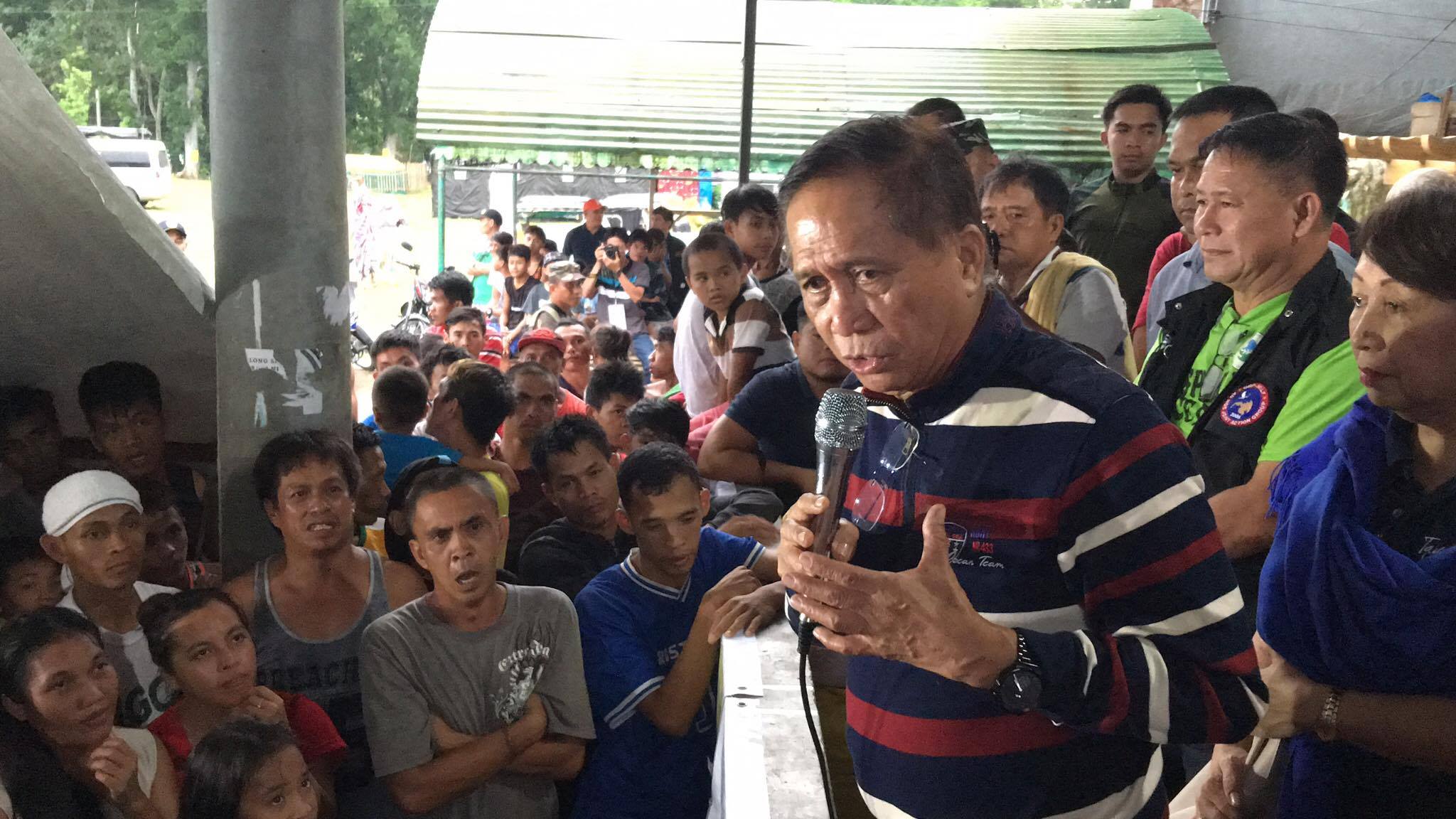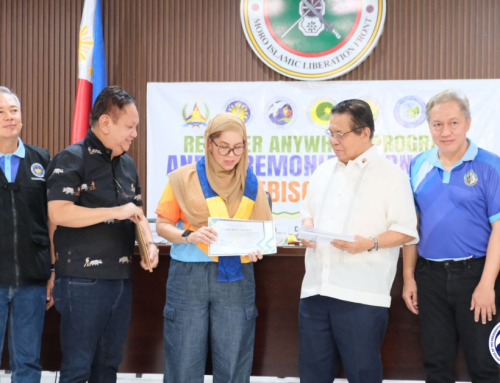BURU-UN, LANAO DEL NORTE – “Let us not allow this crisis to break the bonds of friendship and unity we have painstakingly built among us. We are all brothers and sisters. Let us all unite.”
This was the message of Presidential Assistant for Peace Process Jesus Dureza to the hundreds of civilians who have been staying for weeks in a gymnasium here after being displaced by the ongoing armed conflict in Marawi City.
Dureza, accompanied by OPAPP Undersecretaries Nabil Tan and Diosita Andot and Assistant Secretary Dickson Hermoso, led the distribution of assistance packages for Muslim evacuees to celebrate “Iftar” or breaking of the fast.
The relief packages, which are expected to benefit around 5,797 evacuees, included “moknas” or the traditional prayer garb used by Muslim women, malongs, prayer tents and a variety of food items.
“There are those who want to destroy our relations and turn us against each other. Let us not allow this to happen,” he said in Filipino, as the huge crowd of men, women and children gathered at the evacuation site cheered in agreement.
According to Dureza, there are internal and external forces that are determined to sow fear and discord among the civilian population.
But he stressed that these peace spoilers will never win, as long as the Filipino people remain united and don’t give in to the culture of hatred being espoused by these radical elements.
“If we give in to fear, this means that we have already lost the battle. We should not allow them to win,” Dureza said.
He therefore called on the people to be more vigilant, as this will be the key in preventing incidents such as the Marawi crisis from happening again. Dureza cited the residents of Bohol who immediately reported to authorities the suspicious-looking individuals who had set foot on their shores.
As a result, security forces were able to contain the armed group and prevented them from wreaking havoc in the community.
In the meantime, the presidential adviser called on the people of Lanao to work towards rebuilding socio-cultural relationships that were damaged by the armed hostilities.
Dureza explained that this is the reason OPAPP is implementing a series of “social healing” activities that aim to restore trust and respect among the different ethno-religious groups in the affected areas.
“The healing must start with us and it must begin now,” he said.
Dureza noted that a key feature of these healing efforts are informal conversations that would be conducted in clusters or small groups to be facilitated by imams, ulamas and other Muslim leaders and volunteers.
He noted these conversations would allow victims to express their anxieties and grievances, as well as raise important concerns with the government.
Moreover, these discussions would help gather inputs that would aid the government in crafting early recovery programs for the affected areas.
“We would like to know how all of you feel and find out how the government can help you in recovering from this crisis,” he said.
Dureza emphasized that the assistance provided by the government to the affected residents is only temporary and will eventually come to an end once the crisis is over.
This is the reason, he said, why the residents need to learn livelihood skills that would allow them to earn a living while they are still staying at the evacuation centers. ###












